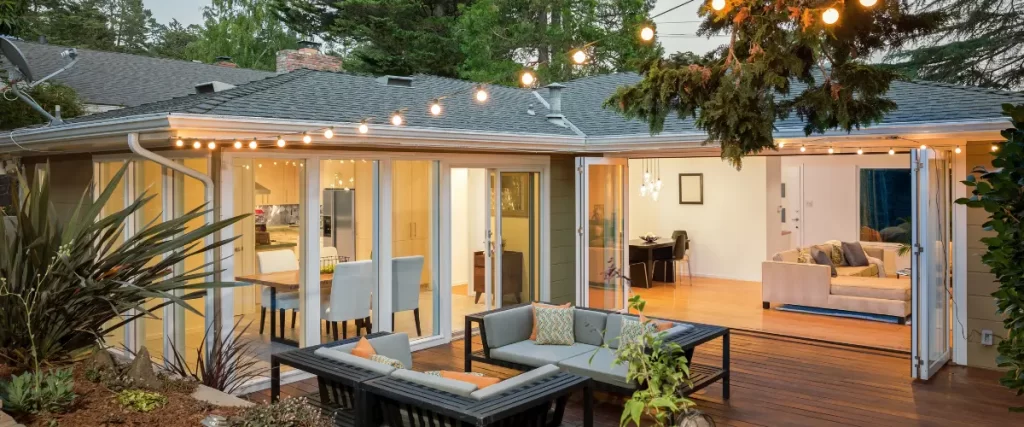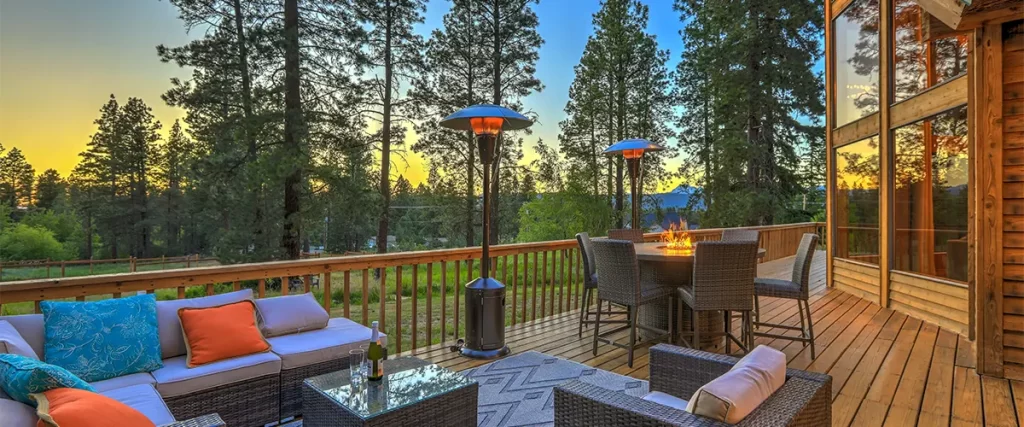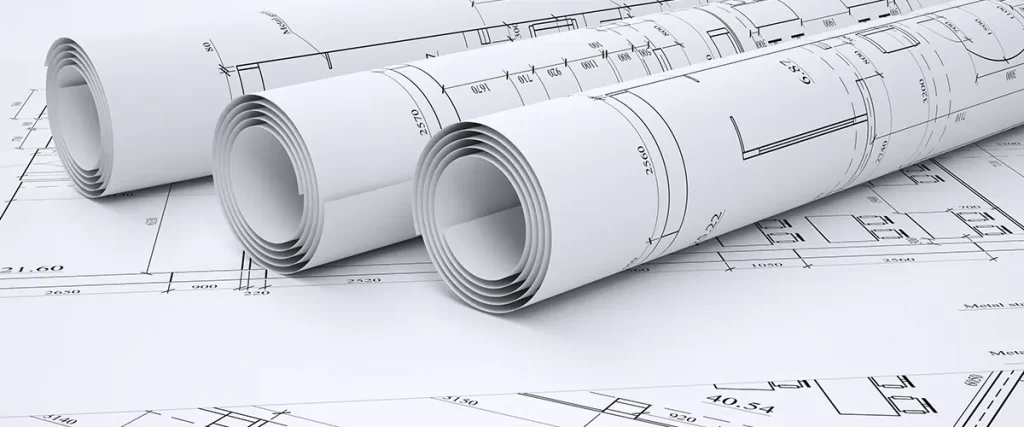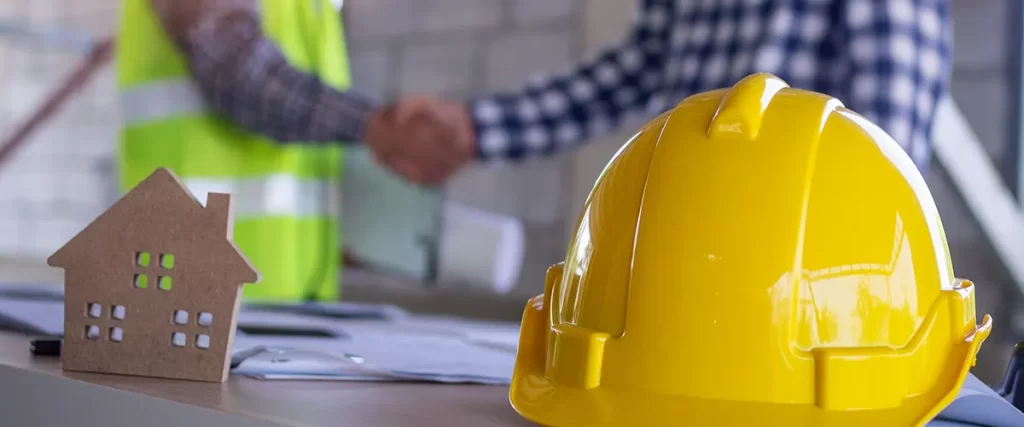If you’re a homeowner in the Omaha metro area dreaming of a backyard deck to soak up Nebraska’s golden-hour sunsets, you’re probably wondering: Which city—Bellevue or Gretna—makes it easier to build?
This isn’t just about paperwork. It’s about your time, your money, and your vision for the perfect outdoor space. And the truth is, deck regulations vary dramatically even between neighboring cities. What flies in Bellevue might stall in Gretna—and vice versa.
In this post, we’re diving deep into the deck-building rules of both cities. Whether you’re planning a small platform for grilling or a multi-level deck with pergolas and lighting, you’ll get clarity on which city is more lenient, what hoops you need to jump through, and how to avoid common mistakes homeowners often make.

Why Deck Regulations Matter to You
Decks aren’t just outdoor add-ons. They add square footage, increase home value, and boost your quality of life. But here’s the thing:
Each city has its own codes, permits, and inspections. One city might say “go for it,” while the other demands architectural drawings, soil tests, and three rounds of inspections.
If you’re comparing homes or planning a project across city lines, understanding the red tape upfront helps you:
- Avoid costly permit issues
- Save time in your build process
- Plan more accurately
- Maximize your deck’s size and features

Bellevue: A Look at Local Deck Regulations
General Overview
Bellevue, Nebraska, is Sarpy County’s largest city and has an established system for residential development. If you live here or are thinking of buying a home here, you’ll want to know how friendly the local government is toward deck projects.
Permit Requirements
In Bellevue, you need a building permit for any deck over 30 inches above grade. That includes most raised decks, especially if your backyard slopes. Here’s what’s typically required:
- Site plan with setbacks
- Structural drawings
- Post footing and beam details
- Zoning compliance review
Deck permits are handled through the Bellevue Building Inspection Division. Processing time can vary, but it’s usually 7–10 business days if all documentation is complete.
Source: City of Bellevue Building Permits
Inspection Requirements
Bellevue requires two inspections for deck projects:
- Footing inspection (before concrete is poured)
- Final inspection (after the deck is fully built)
This is pretty standard and not overly cumbersome. However, if your plans aren’t clearly detailed, they might bounce it back to you.
Restrictions to Watch Out For
- Setback limitations: You’ll need to maintain a specific distance from property lines, especially in newer subdivisions.
- HOA overlay: Many Bellevue neighborhoods are under active HOAs with stricter design controls.
- Railings: Anything above 30 inches must have a guardrail (minimum height of 36 inches).
The Verdict on Bellevue
Bellevue is moderately strict but fair. The city isn’t looking to make your life difficult, but it does expect you to play by the rules. If you’re organized and follow the guidelines, it’s a smooth enough process.

Gretna: A Look at Local Deck Regulations
General Overview
Gretna is one of the fastest-growing suburbs in Nebraska. With newer subdivisions and master-planned communities popping up, it’s become a hotspot for homeowners wanting suburban comfort with city convenience.
But what about decks?
Permit Requirements
Gretna requires a building permit for any deck attached to your home, regardless of height. That’s a stricter standard compared to Bellevue’s 30-inch rule.
You’ll need to submit:
- A site plan with proposed deck location
- Framing details
- Foundation specs
- Railing plans (if applicable)
Source: Gretna Building Department
Processing times can be faster in Gretna—especially since it’s a smaller jurisdiction with less backlog. That said, they are very particular about following International Residential Code (IRC) standards.
Inspection Requirements
Gretna requires three inspections:
- Footing
- Framing
- Final
That third inspection is what sets them apart. It’s an added layer of review, and yes—it can delay your project if any issues are flagged.
Restrictions to Watch Out For
- Stricter code enforcement: Especially around railing systems and structural load.
- HOAs again: Some subdivisions, especially west of Highway 6, have intense design guidelines.
- More engineering requirements: For multi-level or unusually large decks, you might need stamped drawings from a structural engineer.
The Verdict on Gretna
Gretna is more by-the-book. You’ll face more inspections and tighter code enforcement, but the upside is that your deck will be highly compliant and likely future-proofed against resales or insurance headaches.

Bellevue vs. Gretna: The Side-by-Side Comparison
| Feature | Bellevue | Gretna |
| Permit Required Above | 30 inches | Any height |
| Permit Turnaround | 7–10 business days | Often quicker |
| Number of Inspections | 2 (Footing & Final) | 3 (Footing, Framing, Final) |
| Structural Drawings Required | Yes | Yes, often stricter |
| HOA Influence | Moderate | High in newer developments |
| Engineering Requirements | Rare unless custom design | More common for large decks |
| Overall Leniency | More lenient | Stricter |
Climate and Construction: Why This Matters in Nebraska
Let’s not forget that we’re in Nebraska, where temperatures swing wildly from 100°F in the summer to well below freezing in the winter.
That means your deck needs to be built to withstand:
- Frost heave (hello, footings below the frost line)
- Intense sun exposure (think fade-resistant materials)
- Heavy snow loads (yes, even in Gretna)
Gretna’s stricter approach might feel annoying at first, but it does align with the weather challenges. Bellevue gives you more freedom—but you still need to build smart.
Best Decking Material Manufacturers
Choosing the right manufacturer is just as important as getting your permits right. Here are the top names trusted by homeowners in the Midwest.
- Trex – Long-lasting composite decking that’s eco-friendly and low-maintenance.
- TimberTech – Known for its natural wood look and resistance to fading.
- Fiberon – Offers high-end aesthetics with excellent scratch and moisture resistance.
- Deckorators – Ideal for both style and strength, especially in climates like Nebraska’s.
- DuraLife – Great value option with good performance and attractive finishes.

FAQ: Deck Regulations in Bellevue and Gretna
Do I need a permit for a ground-level deck?
In Bellevue, not if it’s under 30 inches. In Gretna, yes—if it’s attached to the house.
How long does it take to get a deck permit?
Bellevue: Around 1–2 weeks. Gretna: Can be quicker, depending on backlog and project complexity.
Can I build my deck myself?
Yes, but you’ll need to follow all regulations, inspections, and structural code requirements in either city.
Are there penalties for building without a permit?
Absolutely. Both cities can issue stop-work orders, fines, and require costly corrections.
Which city has more HOA interference?
Gretna, especially in newer developments. Always check with your neighborhood HOA before submitting your city permit application.
Final Verdict: Which City Has the Most Lenient Deck Regulations?
Bellevue wins for leniency. The city gives you more breathing room, fewer inspections, and an easier threshold for when a permit is actually required. That doesn’t mean you can go rogue—but if you’re looking for fewer hurdles, Bellevue is your best bet.
Gretna is stricter, but with purpose. If you’re building something complex or want the security of tighter standards, it might be worth the extra effort.
Let’s Talk About Your Deck Plans
Planning a deck in Bellevue or Gretna? We’d love to help guide you through the rules, design a space that meets local codes, and make sure you avoid costly mistakes.
Contact us today at (402) 369-5724 to talk about your deck building project. We’re here to make the process easier, whether you’re just getting started or stuck somewhere in the middle.
